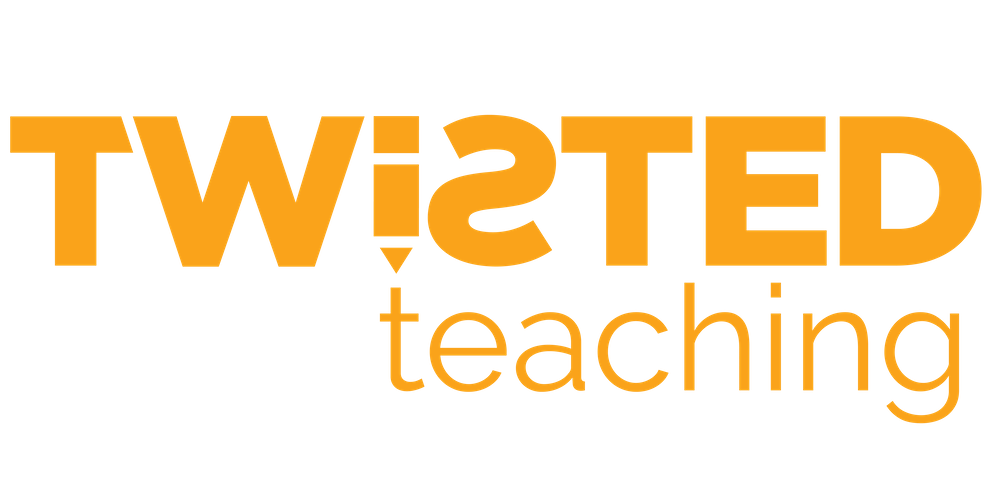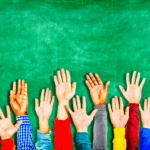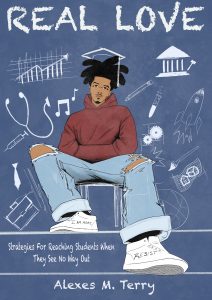When you decided to get into teaching, you did it for several reasons. Most teachers joined the profession because we have a passion for educating and reaching students. We want to change the world and see teaching as a means to accomplish this goal. For Black educators, our “why” is sometimes a little more complex. Let me explain. When Black educators decide to teach, many who do so in an Urban community, we want to give our students the tools they need to thrive and survive in this world. We know that as people of color, we wear a target on our back. In the words of Jason Reynolds and Ibram X. Kendi, we have been “stamped from the beginning,” and we hope our work can diminish the effects of this stamp in the lives of our students. We must educate our children on who they are and on how great they can be which is oftentimes a labor of love and a labor of sorrow.
Now that I have said my piece on that, let’s get into teaching through a pandemic. When schools closed in March, educators across America went into survival mode as we tried to do the best we could for our students while keeping ourselves and our families safe. Here we are in September, still in the middle of a global pandemic, and while the months have changed, for many Educators, the mission remains the same. We want to ensure our students have access to quality education while keeping ourselves and our families safe, but with teachers across America being forced back into the classroom, I question the ability to do both. To be honest, I am torn on how to feel right now. Virtual teaching sucks and exacerbates many inequities that already existed in our country. Kids need to be in school, especially those who are in vulnerable situations that are addressed by the social and mental-health services that our schools provide. However, is there another way? Can we provide quality and meaningful learning experiences and protect teachers and students at the same time? I believe that we can but I question if a return to face-to-face instruction is the way to make this happen. However, a significant part of me thinks that our society values “business as usual” over the health and well-being of teachers and students. As a Black educator, working in a community hit hard by COVID-19, another ring has been added to the target on my back. I love my students and the work that I do with and for them. However, I can not help feeling like educators are being forced back into a dangerous environment that will distract us and hinder our abilities to really give students what they need right now–a safe space. Because, if we are being honest, is the classroom, right now, really a safe?
This new world has me feeling uneasy about teaching and students and the emotional and psychological toll this will have on all involved. We are teaching students through a Plexiglass while hiding our hurt, pain, and anxiety behind a shield or a mask. My heart is imprisoned while these precious faces sit behind what looks like this mini-prison to “keep them safe”. This may seem like a drastic comparison, but that is how it feels as I stare at their faces and wonder what this is doing to them on the inside. I ask myself, it is really worth it? However, without it, what other rings will be added to the target that is already on their backs? Teachers and students will now spend most of our days worrying about not being close to students and staying healthy instead of focusing on teaching. So, are students really being educated or just merely tolerated for the time being?
I believe returning to face to face instruction right now is not the best answer and will put far too many people–teachers and students–in danger. Have we really counted the cost? This past summer, educators were challenged to re-imagine how schools could become spaces of equity for ALL students. However, equity and fear can not co-exist in the same space. Honestly, I don’t have an answer to fully solve the current problem that schools are facing but I do not believe returning to face-to-face instruction is what should happen right now. I am confident that teachers will try to give students the academic, social, and emotional support that they need but, I question, at what cost?
Whitney Hawkins @wmhprolific2020 Whitney Hawkins is a daughter, sister, girlfriend, and a super auntie. She has a podcast entitled Prolific Educators Podcast. This Podcast is dedicated to parents and educators who are prolific in their purpose. On this podcast, you will hear all things education-related. This podcast features a range of educators and parents. This podcast can be found on Apple Podcast, Anchor, and Spotify.



